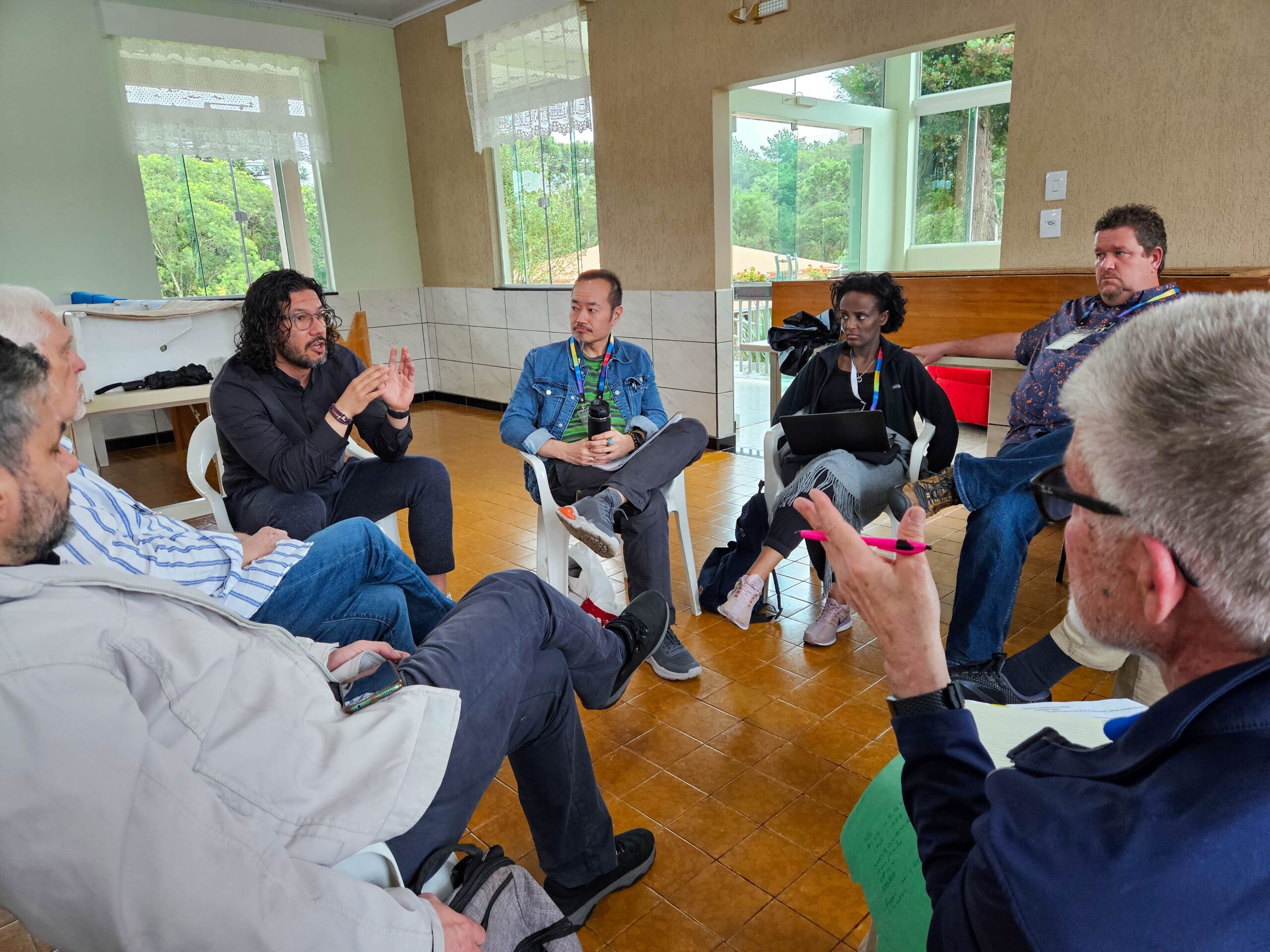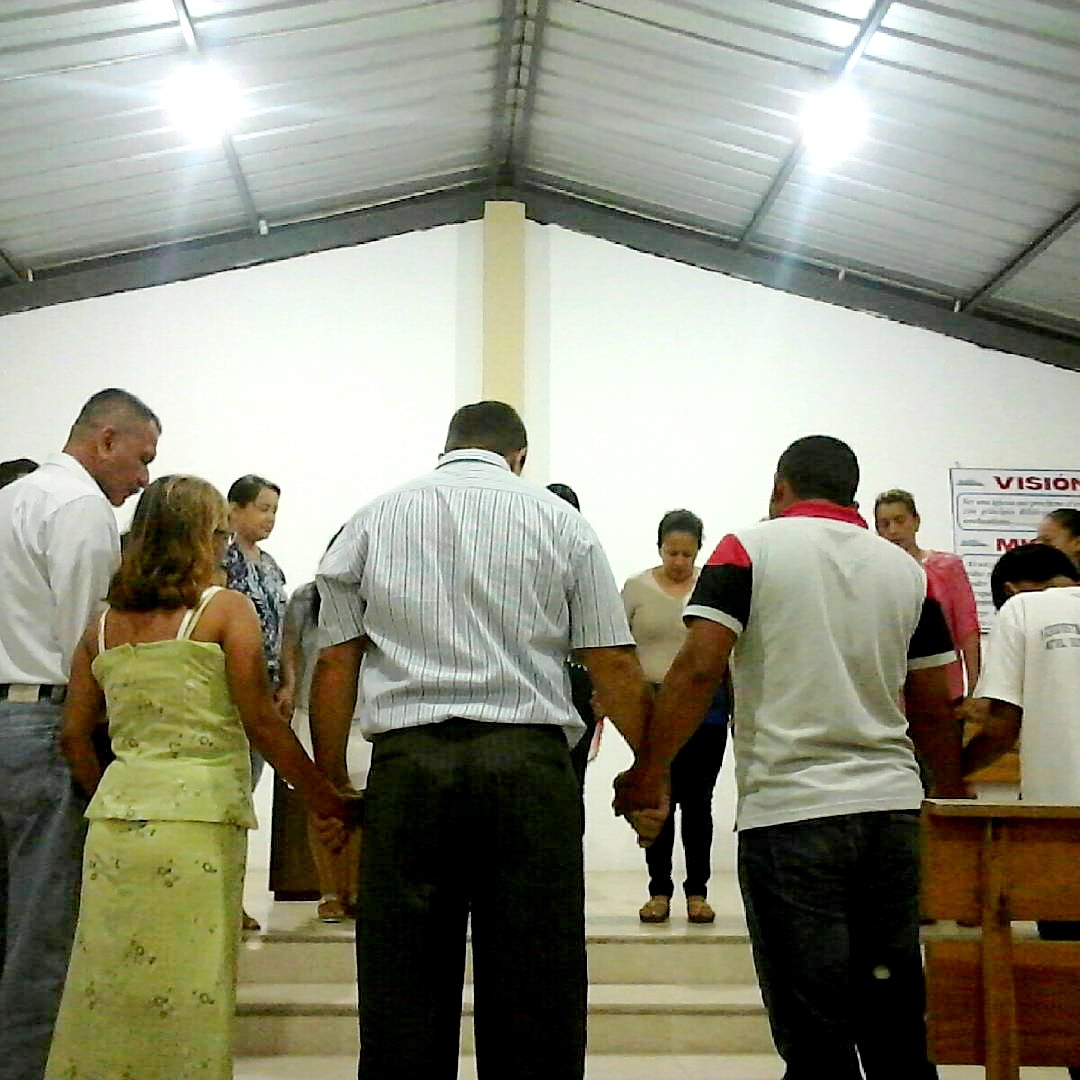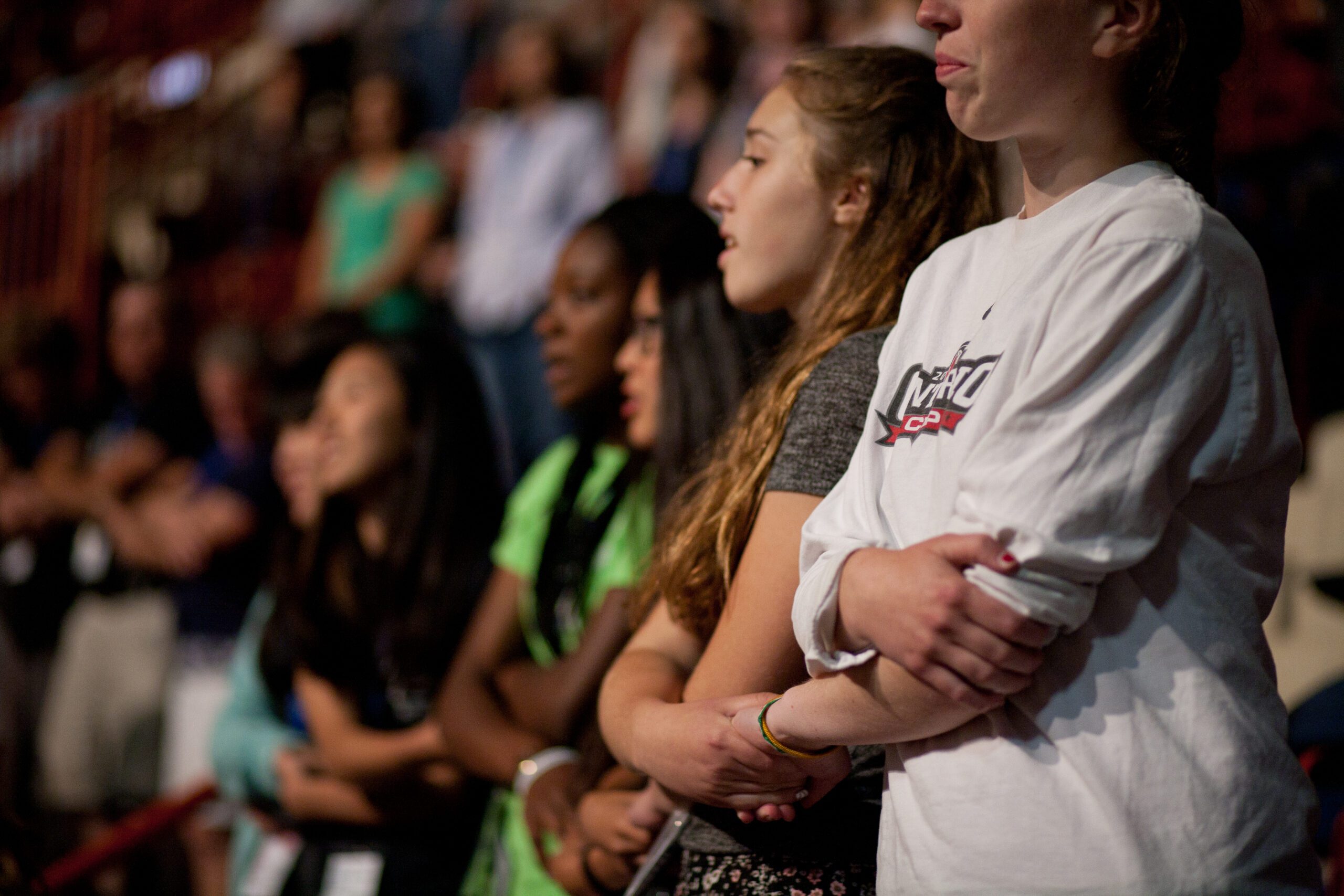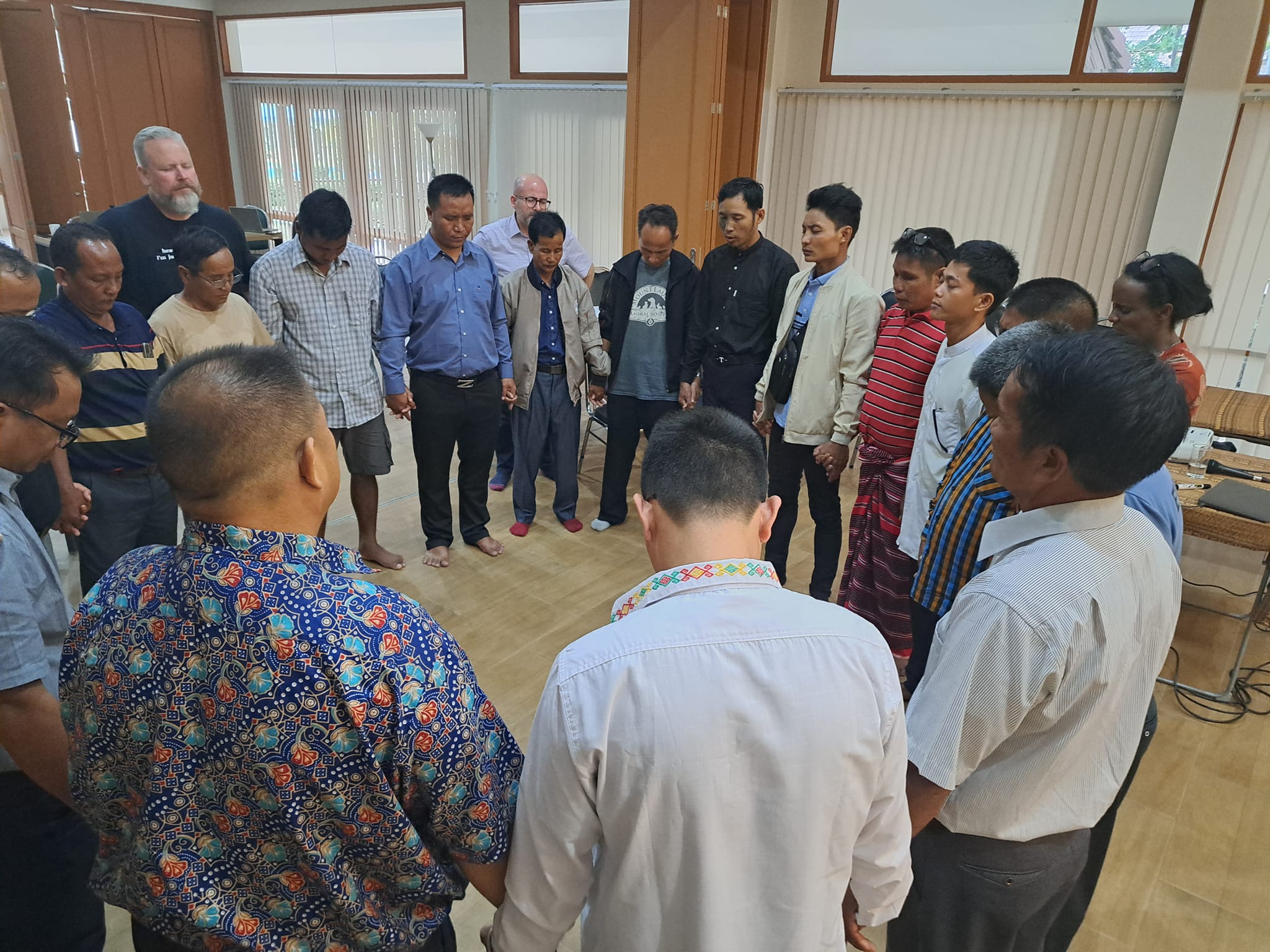-
Terms renewed and specialists appointed
As Mennonite World Conference’s Executive Committee and General Council delegates gather for worship, fellowship and discernment, there are farewells and hellos. Members of the Executive Committee and the Commission serve six-year terms. The terms are staggered to ensure continuity. Executive Committee The Executive Committee is elected from the General Council (GC) and meets annually. Two
-
The beating heart of MWC
Deacons The responsibilities of the Deacons Commission include overseeing the Global Church Sharing Fund (GCSF), fostering prayer within the Anabaptist communion (sending the Prayer Network email, hosting Online Prayer Hour and collaborating with the president on pastoral letters), and deacon visits. From 2022 to the end of 2024, the Deacons Commission approved 20 GCSF proposals
-
A pastoral letter from Anabaptists in Ecuador
A state of “internal armed conflict” has been declared in Ecuador since January 2024. The government continues to struggle against violence from organized crime groups. The three Mennonite national churches in Ecuador – Iglesia Evangélica Menonita Ecuatoriana (IEME – MWC member church), Iglesia Cristiana Anabautista Menonita de Ecuador (ICAME), Iglesia Cristiana Menonita (ICME) – call…
-
A pastoral letter regarding legal action for the protection of religious liberties
Beloved sisters and brothers We call you to prayer for our siblings in the USA who are taking legal action that seeks to restore the rights of people of faith to gather, worship and serve without government interference. Mennonite Church USA joins more than 20 Christian and Jewish communities in this action. The current presidential
-
Yesterday’s martyrs inspire those who suffer today
“Their commitment to passing down the message of peace and the gospel inspires me to live a sacrificial life for peace.” Stories of the early Anabaptist martyrs have shaped and inspired Mennonites around the world for 500 years. They continue to do so for suffering pastors in Myanmar, like the one quoted above. From 25-29
-
You’re Not Alone
*Page with music notation are taken from the forthcoming Voices Together worship and song collection, published by MennoMedia. Used with permission. Permission granted to MWC member churches for congregational use for Peace Sunday and Anabaptist World Fellowship Sunday. For permissions for ongoing use or in larger group gatherings, please contact info@smalltallministries.com. Included here You’re Not
-
Speaker’s bureau
Invite the global church into your congregation! MWC member congregations are welcome to invite one MWC speaker per year to bring a message from the global Anabaptist-Mennonite family. This may be for Anabaptist World Fellowship Sunday, Peace Sunday or any day you wish to give special attention to the global family. Please consider giving an
-
Peace Sunday 2024 – worship resource
Theme Kintsukuroi: The broken vessel is often more beautiful than the original Why this theme was chosen 2 Corinthians 4:7 describes the gospel as a “treasure” in “clay jars.” These humble vessels bring to mind the Japanese tradition of kintsukuroi that creates (or recreates) pottery from broken pieces. Damaged vessels are put back together, often




